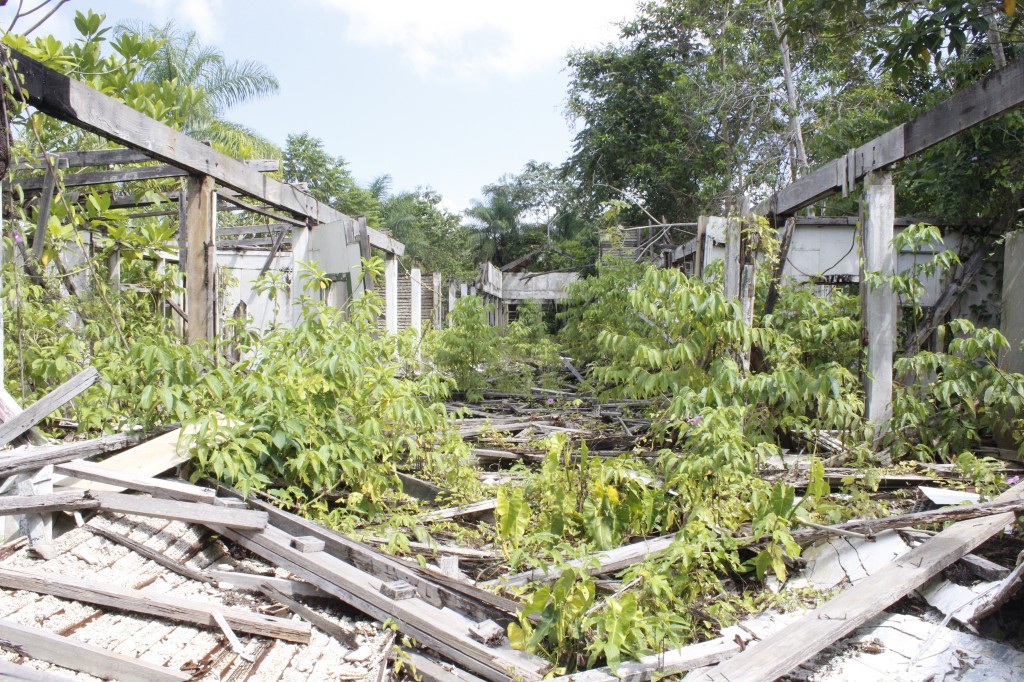Henry Ford dreamed of establishing Fordlândia, a rubber plantation city in Brazil, to ensure a steady supply of rubber for his automobiles. He invested millions to build the city from scratch, and included luxuries for the workers such as an 18-hole golf course and a dance hall.
However, poor management led to pest infestations in the tightly planted trees. Workers also revolted as they were only paid a fraction of what Ford had promised and forced to abandon their local customs. As conditions deteriorated further during World War 2, Ford was forced to sell the failing operations for just $250,000 in 1945, despite having invested over $20 million (equivalent to $325 million in 2022).
Fordlândia remains completely abandoned today, serving as an example of a grand vision brought down by cultural clashes and economic mismanagement.

Aerial View of Fordlândia, Brazil, 1934 (source)

What remains of Fordlândia Hospital (source)
- Wikipedia: Fordlândia
- The Guardian
- Album on Flickr
- mysteries of the world (in Portuguese, Google Translated version)
e: added more sources and edited content to be more accurate


To be honest, that’s an AI summary of the Portuguese post. I clearly didn’t check it properly before posting and I don’t know much about Ford himself.
Remember Hanlon’s Razor.
e: The Portuguese post seems to be largely based on this Guardian article, that also describes it as utopian: